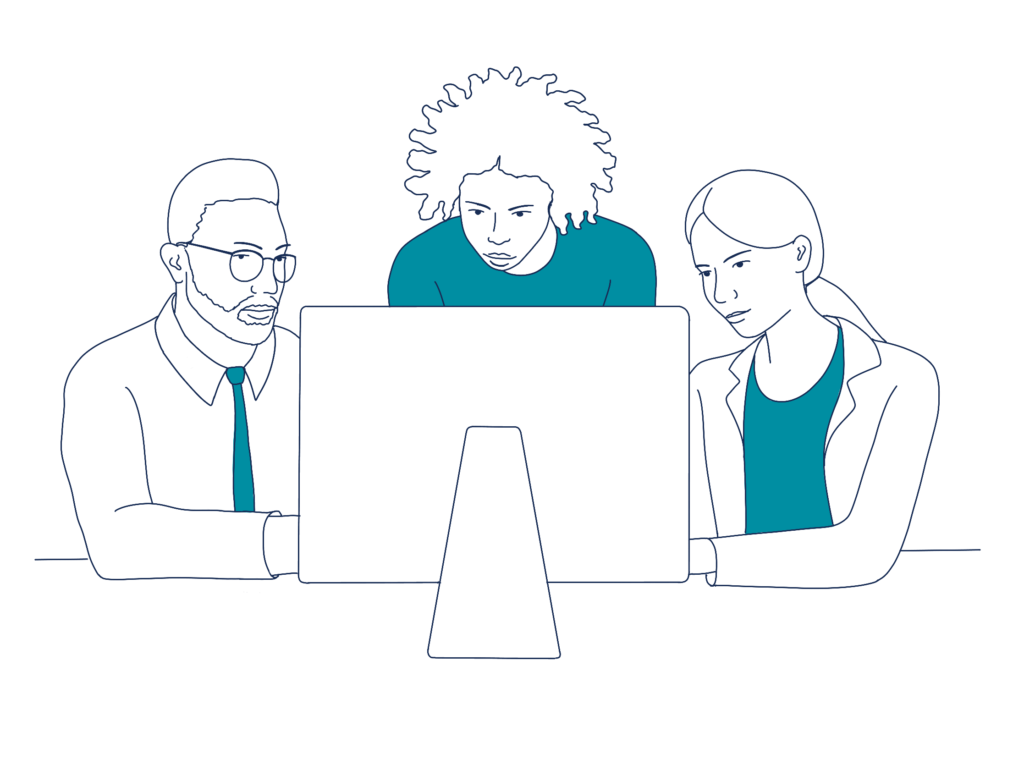Whether your substance use treatment services involve inpatient or outpatient treatment, one of the most critical methods of targeting niche audiences in need of alcohol or drug rehabilitation is through offering specialized treatment services.
Many programs fail to address the growing need for dual diagnosis treatment for victims of rape trauma, for facilities friendly to the LGBTQ+ community, and for addiction assistance aimed at military veterans. These shortcomings can impact your facility’s enrollment rate while negatively affecting the individuals desperately needing specialized services.
The Benefits of Dual Diagnosis Addiction Treatment
The United States National Institute on Drug Abuse found that one-fourth of the people in the U.S. who have a serious mental illness like depression, schizophrenia, or bipolar disorder also have a co-occurring substance use disorder.1
Providing participants with treatment settings where these mental health issues are addressed in a non-stigmatized way, while also providing an empathetic environment where there is a shared experience, could significantly improve their chances of a successful long-term recovery.
A vital part of addiction treatment is discovering the factors that led to your substance use disorder. By providing dual diagnosis treatment, rehabs can help their patients identify triggers and develop strategies to cope with these effects after they are discharged.
Do You Offer Specialized Addiction Treatment Services?
Offering specific treatment programs can be a determining factor in your rehab facility’s success. Identifying the signs of possible co-occurring illnesses or mental health problems in patients can help your staff develop specialized programs to address their individual needs while providing more comprehensive care.
Specialized addiction treatment programs may include:
Prescription Drug Addiction Treatment
Whether focusing on opioid, stimulant, or sedative abuse, a specialized rehabilitation program focused on addressing the causes and symptoms of these individual addictions can significantly improve your patients’ recovery success rates.
Teen- or Young-Adult-Focused Treatment
Teens and young adults experience different causal events resulting in addiction compared to working adults or seniors. Providing them with peer support and helping them realize that they are not alone in their struggle can help enhance their recovery journey.
Gender-Specific Treatment
Gender-specific treatment can cater to participants from religious-, cultural-, or trauma-based addiction backgrounds, offering them a more comfortable environment in which to undergo treatment.
Treatment for Professionals
Allowing professionals to maintain their careers or businesses while addressing the stressors that may have caused the development of their addiction in the first place can significantly increase their chances of successful recovery.
Faith-Based Treatment
Focusing on a spiritual approach to addiction treatment can provide some participants with the support and internal strength required to maintain their recovery and sobriety. Faith-based treatments aren’t for everyone, but those with a spiritual background can benefit significantly from such a program.
Treatment for Sexual Abuse Victims
Individual therapy and counseling regarding possible sexual abuse that played a causal role in their substance abuse can help people identify their triggers and cope with the thoughts and feelings that push them toward drug and alcohol addiction.
Dual Diagnosis Treatment
Treating substance abuse alongside possible mental health disorders like anxiety or depression can help address the cause of addiction, which may have arisen after self-medicating.
Whether dual diagnosis involves additional therapy, medication to treat the mental health condition, or group meetings to foster a support network, this specialized approach may be one of the most important services to offer.
Behavioral Addiction Treatment
Behavioral programs may involve gambling, pornography, video-game, or internet addiction treatment. The factors that result in drug or alcohol abuse often also lead to other behavioral issues that should be addressed during treatment to offer a holistic recovery approach and access to the relevant support groups.
LGBTQ+ Friendly Treatment
Members of the LGBTQ+ community are often the most stigmatized when it comes to addiction treatment. Offering a non-judgmental, inclusive environment and program can significantly improve their chances of long-term recovery. An LGBTQ+ exclusive environment may feel “safer” for a person who has been made to feel “outside” or “less than” in a general population environment.
It is also so important that we acknowledge that members of the LGBTQ+ community are often targets for physical violence, so it is crucial to find treatment facilities where they are protected from harm or discrimination.
Medication-Assisted Treatment
Often therapy and counseling may not be enough to help people deal with cravings and withdrawal, especially in opioid addiction. Offering medication-assisted treatments like methadone or suboxone can help assure patients they do not have to experience the full range of withdrawal during detox and provide them with a calm, more positive recovery experience.
Veteran-Focused Treatment
Soldiers and other veterans often suffer from co-occurring disorders like PTSD or depression. Providing them with a supportive environment and relatable therapy services can help aid their substance abuse recovery while addressing their mental health.
How to Develop Your Programming Toward Speciality Services

Adapting your treatment facilities and programs to appeal to niche audiences can be a straightforward process. One of the first steps is staffing your treatment center with healthcare professionals such as RNs and LVNs and mental health professionals trained to work with patients from any specific demographic you are focused on.
Many counselors and clinical professionals have specific training for the purpose of working with eating disorders, sexual trauma, witnesses to violence or catastrophic events, or survivors of childhood abuse or neglect. It is important that when you specialize in a certain population you staff your team with professionals who have a defined credential or background in treating this niche.
Involving social workers and behavioral specialists in your rehab programs can also provide insight into the provisions and adjustments necessary to cater to individuals who require more than just a standard detox and therapy approach.
Target Niche Audiences with RecoverWell
If your facility programs offer specialized treatment services and are still struggling to reach your target audience, RecoverWell can help. RecoverWell offers a free online questionnaire surveying each potential patient’s needs, including:
- The substances they abused
- Their dual diagnosis requirements
- Any comorbidities
- Their necessary level of care
- Their personal preferences
Using these criteria, the system matches patients with the most suitable rehab facility within their budget and insurance coverage.
Instead of focusing on lead creation calls and social media ads, registering your facility with RecoverWell can provide you with access to pre-verified profiles of individuals who are serious about their health and looking for the treatments you offer.
RecoverWell also offers rehabilitation facilities free access to their patient advocate platform for the purpose of outsourcing patients that do not fit their program model to other RecoverWell partners who meet the patient’s treatment needs,
Source:
